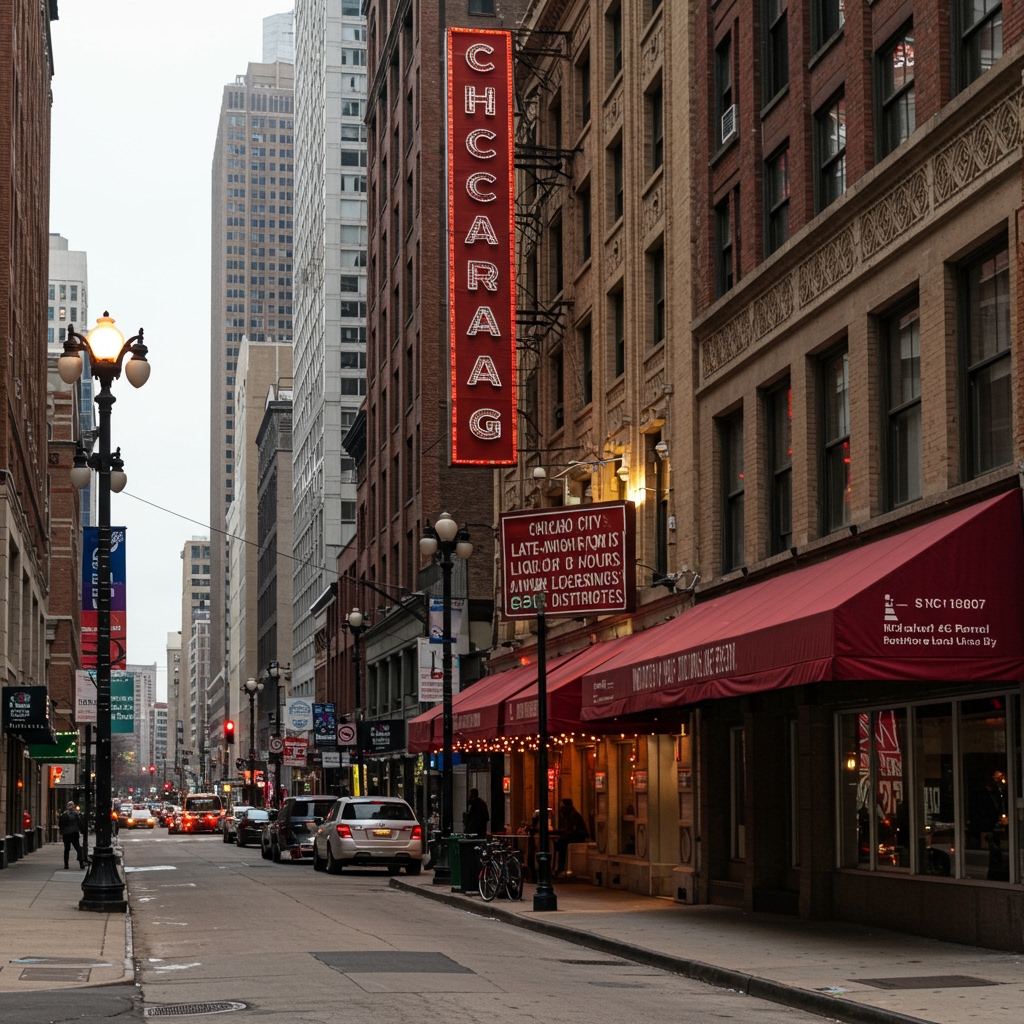CHICAGO, IL – The future of Chicago’s late-night economy took center stage on April 22, 2025, as the Chicago City Council Licensing Committee convened at City Hall’s Committee Room B. The highly anticipated session was dedicated to a thorough deliberation of proposed amendments surrounding the controversial 4 AM liquor license plan, formally designated as Ordinance 2025-O-123. This ordinance seeks to potentially reshape the operating hours for numerous establishments across the city, sparking significant debate among stakeholders.
Deliberation on Ordinance 2025-O-123
The meeting, chaired by Alderman Maria Rodriguez, commenced with an overview of Ordinance 2025-O-123 and the various concerns and suggestions that have emerged since its initial proposal. Alderman Rodriguez highlighted the complexity of balancing the economic vitality of the city’s nightlife with the quality of life for residential communities situated near licensed establishments. The proposed 4 AM closing time, a significant extension for many venues, has been a flashpoint for discussion, drawing strong opinions from both proponents and opponents.
Alderman John Chen played a significant role in the deliberation, contributing detailed inquiries and perspectives that reflected the diverse viewpoints within the council and the city itself. His input often focused on the practical implementation challenges and the potential unintended consequences of such a broad policy change. The committee’s discussion was characterized by a careful examination of the ordinance’s provisions and a search for potential modifications that could address the wide array of community and business interests.
Proposed Amendments and Stakeholder Input
A focal point of the committee’s review was the set of proposed amendments submitted by the Chicago Nightlife Coalition on April 19. These amendments represent a key effort by industry representatives to offer alternative frameworks that might mitigate potential negative impacts while still supporting the late-night business sector. Among the specific suggestions put forth by the Coalition were the implementation of a tiered permit system, which would potentially allow varying closing times or operational conditions based on factors such as location, size, or establishment type. This system aims to provide more flexibility than a one-size-fits-all approach.
Furthermore, the Chicago Nightlife Coalition’s proposal included a strong emphasis on mandatory noise abatement technologies and strategies. Recognizing that noise is a primary concern for residents, these suggestions focused on practical measures that establishments could be required to adopt, such as improved soundproofing, managed exit procedures, and engagement with community noise mitigation programs. These proposed amendments were presented as a means to foster a more harmonious coexistence between late-night venues and their neighbors.
Public Testimony Reveals Divided Opinions
The hearing included a lengthy and often impassioned public testimony period, providing a platform for those directly affected by the proposed changes to voice their perspectives. Numerous bar owners testified, many expressing support for extended hours as a crucial element for business survival and growth in a competitive market. They highlighted the potential for increased revenue, job creation, and the enhancement of Chicago’s reputation as a vibrant global city. Some business owners also spoke about the investments they were willing to make in soundproofing or security measures to be good neighbors.
Conversely, a significant number of residents from various neighborhoods presented compelling arguments against the 4 AM license extension. Their concerns centered on the potential for increased noise disturbances late into the night, late-night loitering, parking issues, and a potential decrease in overall neighborhood safety and tranquility. Residents shared personal anecdotes about past issues with late-night venues and urged the committee to prioritize quality of life over extended business hours. The testimony clearly illustrated the deep divisions within the city regarding Ordinance 2025-O-123.
Outcome and Next Steps
After several hours of deliberation and hearing public input, the Chicago City Council Licensing Committee concluded its session on April 22, 2025, without taking a final vote on Ordinance 2025-O-123 or the proposed amendments. The complexity of the issues raised, coupled with the differing viewpoints presented by stakeholders, led the committee to determine that additional deliberation was necessary before reaching a decision. Alderman Rodriguez indicated that the committee needed more time to carefully consider the feedback received and potentially refine the ordinance or its accompanying regulations.
The committee opted to schedule a follow-up hearing to continue the discussion. The next session is tentatively planned for the first week of May, allowing committee members time to review testimony, analyze the proposed tiered system and noise abatement suggestions, and potentially explore further compromises or modifications to the ordinance. The outcome of that future meeting will be critical in determining the fate of the proposed 4 AM liquor license plan and its potential impact on Chicago’s nightlife and residential communities.













